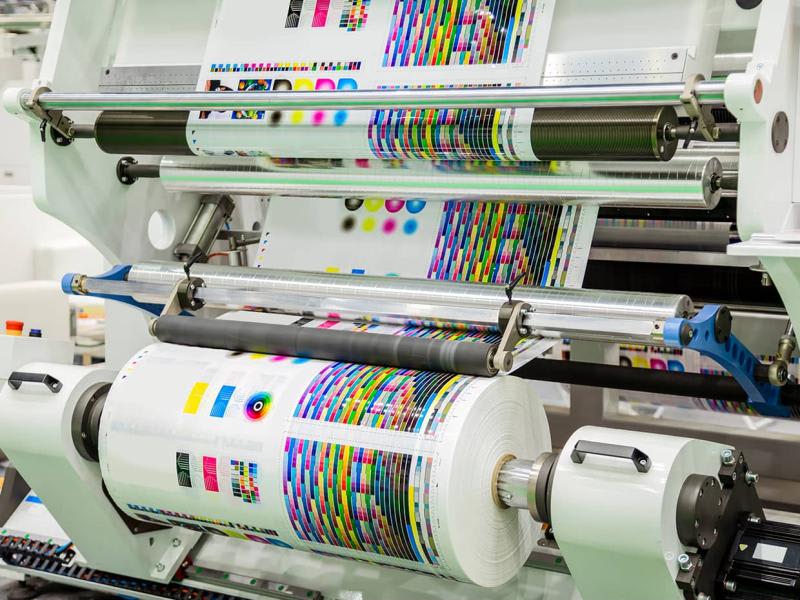Australian manufacturers should prepare now for the Payday Super changes
From 1 July 2026, all employers must pay Superannuation Guarantee (SG) contributions at the same time as employee wages. This reform, known as ‘Payday Super,’ marks a significant departure from the current quarterly system.
The change is particularly significant for the manufacturing sector. Australian manufacturers have complex rostering patterns, diverse forms of employment and face strict compliance obligations. All of these factors complicate payroll. The Manufacturing and Associated Industries and Occupations Award 2020 (the Manufacturing Award) prescribes detailed terms and conditions of employment. Manufacturing workplaces are also frequently covered by Enterprise Agreements (EAs), which overlay award entitlements.
Payday Super adds yet another complication for manufacturing employers to navigate.
What is Payday Super?
Payday Super aims to safeguard retirement savings by making sure contributions are made more quickly, allowing individuals to benefit fully from compound growth. It also helps prevent non-compliant employers from delaying or skipping these payments, using data matching and targeted penalties for any shortfalls identified by the ATO.
Under the current framework, employers are required to pay SG contributions quarterly, with payment due 28 days after the end of each quarter. Under this system, employers have nearly four months to pay SG. From 1 July 2026 this system will be replaced, and Payday Super will require that contributions must be received by the respective fund within seven business days of pay day.
Employers will therefore need to ensure that superannuation contributions are transferred at the same time as wages, or within a reasonable period to allow the clearing house to process the transaction.
What are the consequences for not meeting Payday Super obligations?
The penalties for non-compliance will also be significantly more onerous than at present. Employers who fail to make timely contributions will become liable for a new version of the Superannuation Guarantee Charge (SGC). This charge will accrue on a daily compounding basis and will include a substantial administrative component. The Australian Taxation Office (ATO) will also impose additional penalty loadings where an employer breaches fund choice obligation. In practical terms, this means that the financial consequences of even short delays will be more severe than under the existing quarterly system.
End of SBSCH
The reforms also bring an end to the use of the Small Business Superannuation Clearing House (SBSCH). From 1 July 2026 this facility will no longer be available, and employers must instead use payroll-integrated solutions or alternative clearing houses to distribute contributions. Employers normally have until 28 July to pay SG for payments up to 30 June under the current framework. However, with SBSCH closing on 30 June, employers must ensure these payments are managed accordingly.
How does the Manufacturing Award impact employer super contributions?
The Manufacturing Award interacts with superannuation obligations in several critical aspects, all of which must be carefully navigated under the new regime:
Ordinary Times Earnings (OTE)
Superannuation contributions are calculated on an employee’s OTE. For a full-time manufacturing employee, ‘ordinary hours’ are typically 38 hours per week, or an average thereof, as defined by the award’s ordinary hours clause. The importance of this definition was highlighted in the Bluescope Steel (AIS) Pty Ltd v Australian Workers’ Union case[1], where the court confirmed that “ordinary hours” means the hours set out in the relevant award or agreement. We note that working on a public holiday may often fall within this 38 hours, as will leave taken. Accordingly, it is likely SG will be payable.
All-purpose allowances
The Manufacturing Award contains various allowances, and some of these are designated as ‘all-purpose’ allowances. An all-purpose allowance is folded into an employee’s ordinary pay rate for all intents and purposes – including the calculation of penalties, leave entitlements, and super. For example, an award’s leading hand allowance, certain tool allowances, and various others are paid “for all purposes,” meaning they are included in the rate of pay when calculating overtime, leave, or superannuation.
In practical terms, if a manufacturing employee is entitled to an all-purpose allowance, that allowance amount should be added to their ordinary earnings and should attract superannuation contributions. Manufacturers need to review which allowances in their pay structure are all-purpose and ensure these are counted toward OTE in payroll systems. Failure to pay super on these would constitute an underpayment.
Shift work and overtime
The manufacturing sector is heavily reliant on continuous operations, extended shifts, and regular overtime, which complicates the determination of what constitutes ordinary time earnings. Confirmed in Bluescope, ordinary hours are those specified in the relevant industrial instrument, so additional hours may only be excluded if clearly and expressly identified as overtime.
In practice, this means that manufacturers must carefully and comprehensively distinguish all award-defined ordinary hours to ensure the correct obligations are being met.
Annualised wages
Some manufacturing businesses remunerate staff via annualised salaries that absorb overtime and penalties. The Manufacturing Award allows annualised wage arrangements for certain classifications, provided the arrangement meets strict requirements. If your company uses annual salaries to cover what would otherwise be overtime or shift penalties, it’s essential to clearly document the breakdown.
For example, in Bluescope, they had explicitly calculated an annual salary as comprising a base and a fixed overtime component. Because of this clarity, the Full Federal Court agreed that the overtime portion was truly overtime for being outside of ordinary hours, and not subject to compulsory superannuation.
What manufacturers should do now
With the start date of Payday Super approaching, manufacturing businesses should take proactive steps to ensure a smooth transition. Here is a checklist of practical actions in light of the above discussion:
In response to Payday Super RSM have developed a proprietary 7-stage streamlined process, to assist businesses with their transition to Payday Super.
Our solution has been designed with your needs in mind and addresses the following areas:
Stage 1: Current environment assessment
Evaluating existing practices to identify gaps and areas for improvement.
Strengthened Governance & Process Transparency: Gain a clear understanding of existing controls, onboarding practices, and SG procedures to identify gaps and improve compliance frameworks.
Stage 2: Wage code review
Ensuring accurate and compliant wage coding to avoid discrepancies.
Payroll System Accuracy & Compliance Alignment: Ensure wage codes are correctly flagged for SG and STP2, reducing the risk of misreporting and enabling consistent payroll processing.
Stage 3: Transactional testing
Conducting thorough tests to verify the accuracy of superannuation transactions.
Data Integrity & Risk Detection: Identify transactional errors and inconsistencies that may lead to SG underpayments, enhancing confidence in payroll data quality.
Stage 4: Implementation
Putting necessary changes into action to align with compliance.
Documented Controls & Sustainable Compliance: Translate recommendations into actionable procedures with embedded controls and testing protocols to support long-term compliance.
Stage 5: Continuous Monitoring
Regularly overseeing compliance to mantain standards and adapt to changes.
Ongoing Assurance & Early Issue Detection: Establish a proactive review cycle to monitor new wage codes and sample transactions, ensuring sustained compliance and early identification of issues.
Stage 6: Payday super readiness
Preparing for implementation of Payday Super regulations.
Future-Proofing & Regulatory Preparedness: Prepare systems, governance documents, and clearing house arrangements for the transition to Payday Super, reducing disruption and ensuring readiness.
Stage 7: Reconciliations
Ensuring all superannuation contributions are accurately accounted for and balanced.
Real-Time Compliance & Employee Trust: Support accurate SG remittance tracking and reconciliation to align with ATO’s real-time data matching, enhancing transparency and employee confidence.
For the manufacturing sector, the PayDay Super reform brings greater risk with the complex provisions of the Manufacturing Award, the widespread use of EBAs, and the operational difficulties of shiftwork. Manufacturers should therefore act now to audit payroll practices, review employment contracts, upgrade systems, and strengthen compliance frameworks. By doing so, they can not only avoid the substantial penalties associated with underpayment but also best position themselves to respond to the significant changes.
FOR MORE INFORMATION
Rick Kimberley is a Partner at RSM Australia and leads the Australian Employer Services Practice. Should you wish to have a conversation with Rick regarding ways him and his team are helping clients prepare for Payday Super he can be contacted at rick.kimberley@rsm.com.au
Australian Workers' Union v BlueScope Steel (AIS) Pty Ltd [2018]





